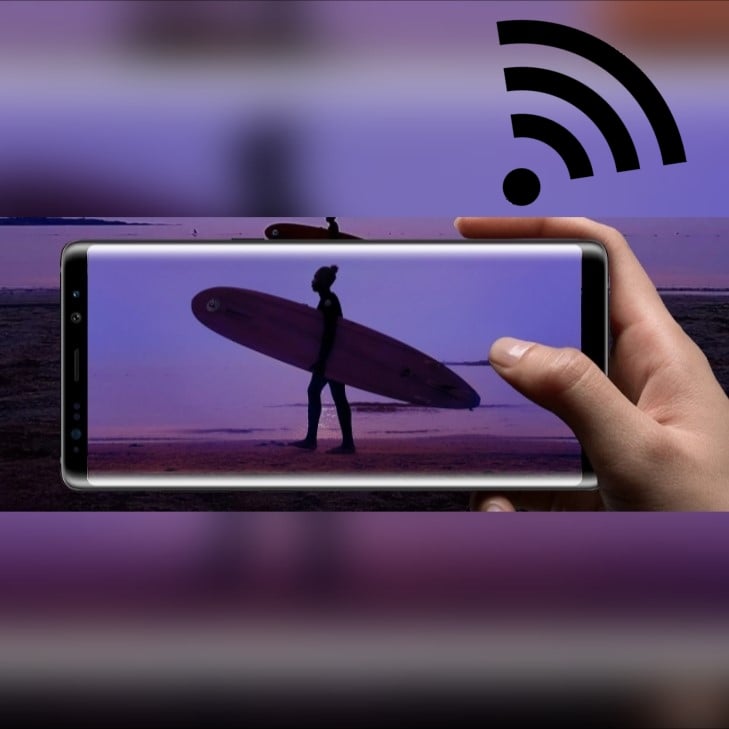The latest flagship of Samsung – Galaxy Note 8 gives you a big screen and an S Pen which makes your experience of using the phone a magical one. Smartphones could be considered useless without the internet – be it updates or other functions such as GPS tracking, running of apps and games along with other things. No internet or a disrupted connection could hamper the work you are doing or enjoying a game or movies. There could be different reasons to why your Note 8 won’t connect to the Wi-Fi and there are different ways on how you could go about rectifying it. Here a list of solutions on how to fix Galaxy Note 8 Wi-Fi issues.
Read also- How To Fix Galaxy Note 8 Fingerprint Scanner Issues
Methods to Fix Galaxy Note 8 Wi-Fi Issues
Some basic fixes for Samsung Galaxy Note 8

- Restart your Note 8 to check if the problem is solved
- Check if your Wi-Fi is working on other devices if the problem is the same for other devices too then the problem is with the router.
- Restart your Wi-Fi router to see if the problem has been solved.
- Check whether your router is working properly. Switching to 2.4 GHz on your router’s settings usually solves the problem.
- The Smart Wi-Fi Switch also causes problems. When in this option the device will tend to switch to networks to connect to the best alternative. This may cause disruption in the network. Disable this from Settings >Wi-Fi > Advanced > Toggle to Disable.
Safe Mode Detects Problems
Frequently it is seen that a faulty app is a problem for several issues on a smartphone. All third-party apps cannot be trusted and they may bring along with them a different virus that would harm the functions of your phone. Safe mode lets you isolate all the functions of any third-party app. When in this mode you would be able to distinguish whether or not a third-party app is a cause for your Wi-Fi problems. Here is how to reboot your phone to Safe Mode.
- Turn off your Note 8
- Press and keep holding the Power key and as SAMSUNG appears on the screen let go of the Power button
- Instantly press and hold the Volume button and keep holding it till your device has restarted.
- Safe Mode will be displayed towards the left-hand side corner on the screen at the bottom. Now release the Volume button.
When your Note 8 has booted in Safe Mode you will have to try and connect it to the Wi-Fi. If the problem is gone and you aren’t facing any troubles with the internet connection then an app is responsible for the issue.
Update the Apps
Now that you know that a third-party app is responsible for the problem but among so many apps you don’t know which is the faulty one then as a solution you can first try and update all the apps. Updates are compulsory and they come with bug fixes. Without updates, there could be a lot of issues.
- On the Home Screen of your Note 8 go to Play Store
- Tap on the Menu key to get a list of options.
- Under this option tap on My Apps and in this screen, you will see apps which require updates. Just click on the box which says ‘UPDATE’ if you want to update them individually. Or, you can select the option to update all the apps at one go.
- If you want these apps to be updated automatically for later use then go to Menu > Scroll down to Settings > Tap on Auto-Update apps and check on the option that you would like (select Auto-update apps over Wi-Fi only is the best option)
Once you have updated your apps restart your phone and connect to the Wi-Fi once again to check if the problem is still there. For most the Galaxy Note 8 Wi-Fi issues have been fixed with app updates.
Reset Apps
If your Note 8 was running fine on Wi-Fi before you downloaded a specific app or apps then they may be the cause of the problem. If updates haven’t helped then you should try resetting them to check if the Wi-Fi issues have been fixed.
- Go to Settings and then go to Apps
- Tap on the app that you think may be the cause of the problem or click on the dotted icon and then select Show System Apps.
- This will reveal the list of pre-installed apps
- Tap on Storage
- Next, tap on Clear data and then select OK
- Tap on Clear cache
Now check for the Wi-Fi connection once again.
Uninstall the Apps
If caching the data has also not worked you just as might try and uninstall the app to check which one is the cause of the problem.
- On your screen go to Settings and then go to Apps
- Tap on the app that you think may be the cause of the problem or click on the dotted icon and then select Show System Apps.
- This will show the list of pre-installed apps
- Tap on Uninstall and re-tap to confirm
Keep connecting your Wi-Fi to check if the problem is solved. If you find the Wi-Fi running fine after a specific uninstall then don’t install the same app again instead use a similar one as the substitute.
Rest Network Settings

You can try and reset the network settings of your Note 8.
- Go to Settings on your phone
- In this screen, head tap on General Management
- You will find Reset and then tap on Reset Network Settings and then Rest Settings
- In case you have a security PIN set you will be prompted, enter to move ahead with the process
- Tap on Reset Settings and then wait for a confirmation to appear, this means the process is complete
Remember there are certain changes that would happen:
- All stored Wi-Fi networks would be deleted
- All Bluetooth devices that have been paired with Note 8 will also be deleted
- Network selection will now be automatic
- All data restrictive settings in apps which were manually turned off or on will go back to their original settings
- Background data sync settings will be on
Once your network settings are reset connect to the Wi-Fi.
If you find none of this is working then you should try visiting an authorized Samsung workshop. The chances are you won’t have to do that because the above solutions usually solve the Galaxy Note 8 Wi-Fi issues.







